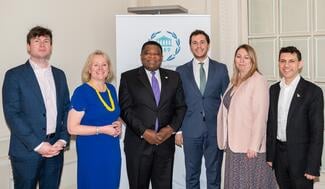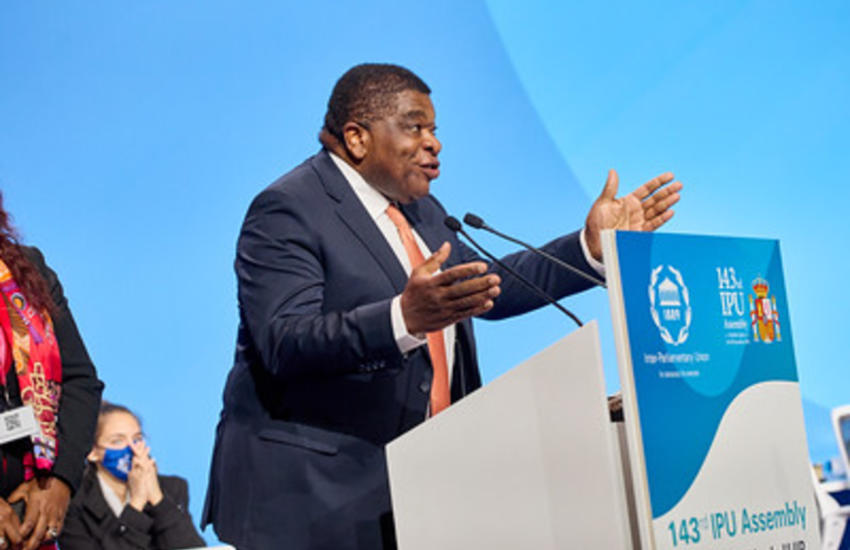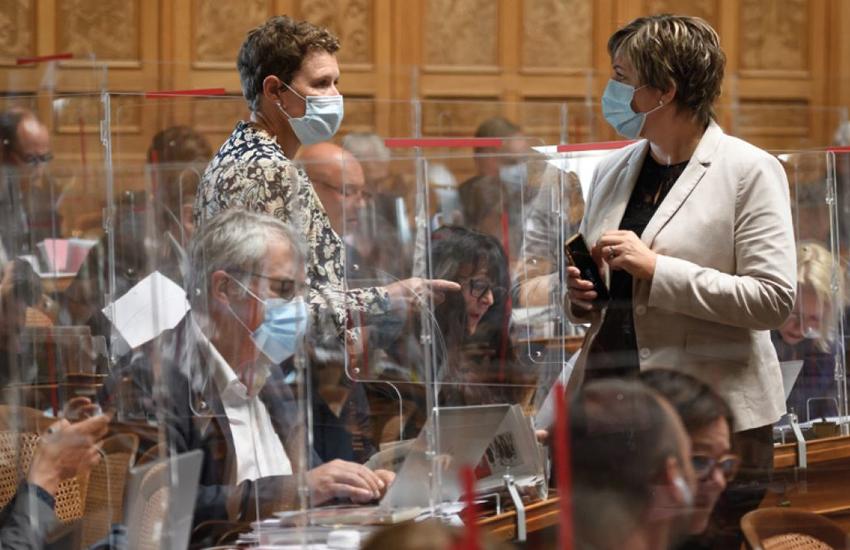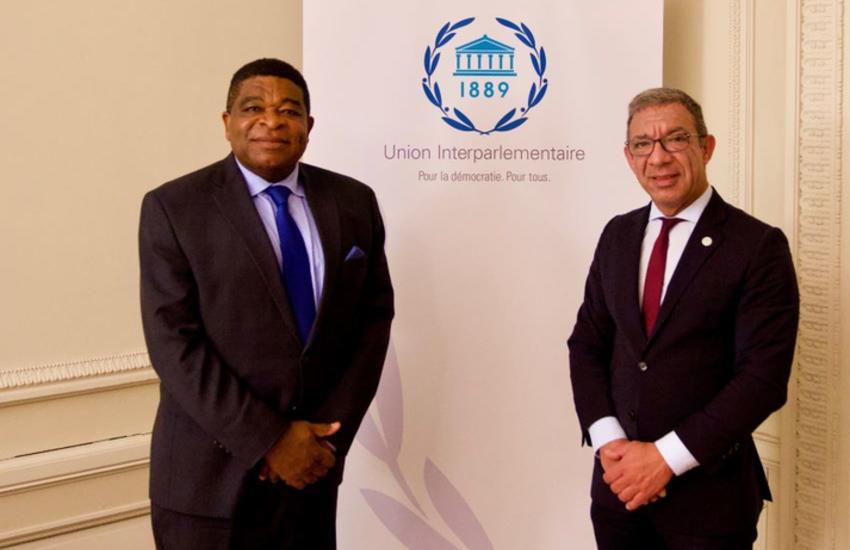Last week the IPU welcomed at its headquarters in Geneva several parliamentary delegations to discuss parliamentary action on a number of issues, including human rights, climate change, global parliamentary diplomacy, and violence against women MPs.
All ten members of the IPU Committee on the Human Rights of Parliaments, many of them new, attended a four-day hybrid session to review and propose recommendations for action on cases of abuse against MPs. This unique Committee has a growing portfolio of complex cases from around the world.
The IPU also welcomed delegations from the British Group of the IPU, a founding member of the IPU, headed by its new Chair, Ms. Karen Bradley; the Deputy Speaker of the Parliament of Ghana, Mr. Joseph Osei-Owusu, leading a high-level delegation; a delegation from the Republic of Korea; and a delegation from Sweden, the largest voluntary contributor to the IPU, headed by Mr. Arin Karapet.
Welcoming all these visiting delegations, IPU Secretary General, Martin Chungong, stressed the importance of strong and resilient parliaments, both entrenched and new, as the centrepieces of democracy. He emphasized the role of parliamentary diplomacy between countries in conflict, one of the foundational values of the IPU, whose origins date back to the peace movement in the late 19th century.
The Ghanaian and Korean delegations were also in Geneva to intensify their engagement with the Universal Periodic Review (UPR) process at the United Nations Human Rights Council. The UPR is an opportunity for countries to declare what actions they have taken to improve human rights nationally. In the past, parliaments have often been absent from that process. The IPU helps parliaments to better engage in the UPR as well as other UN processes and mechanisms.











